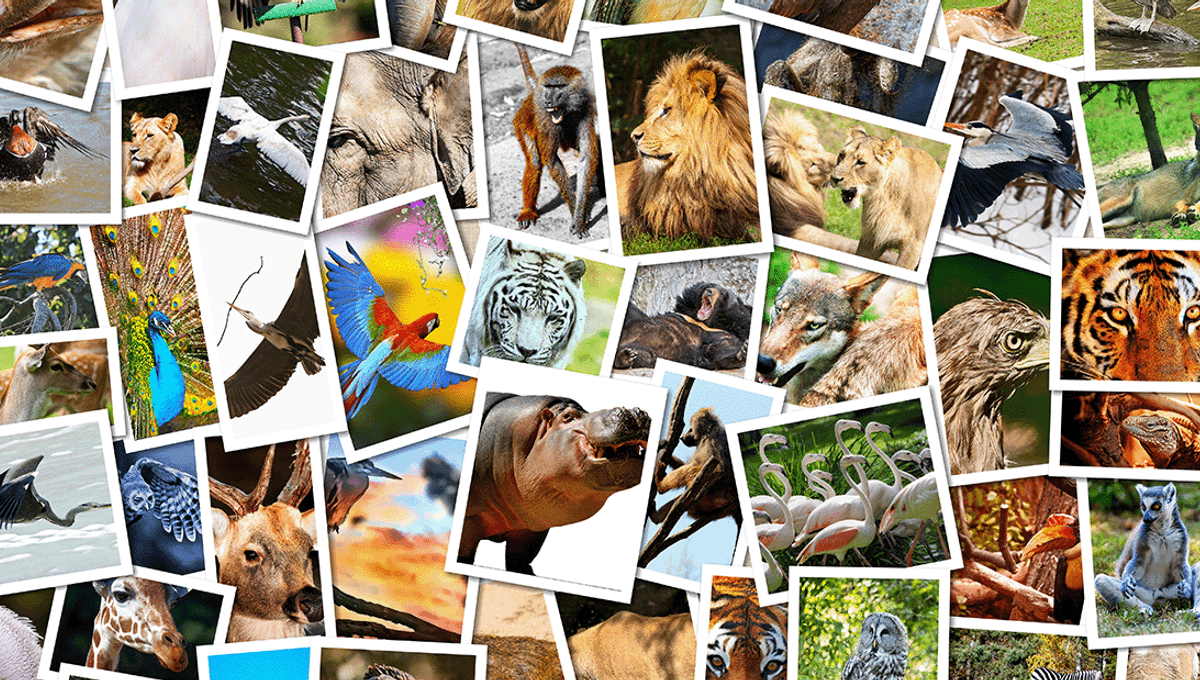
A surprising number of new species of plants, animals, and even fossils are discovered every year. Some, like the geckos of Madagascar, are hiding in plain sight, while others spring from previously discovered species thanks to advances in genetic technology and DNA sequencing. However if you’re part of the team to discover a new species, can you name it anything you like? We’ve had a look at the hefty documents and list of rules when it comes to naming new things, and yes, whether you can name it after yourself is on there.
How are animals named?
Traditionally, every animal is described using the Linnaean system of genus followed by species, usually taking the names from Latin or Greek – think Panthera leo, Homo sapiens, etc. In more recent times, names for new species have become a bit more trendy, with inspiration taken from celebrity culture (looking at you Harrison Ford), or honoring a scientist typically within that field.
For newly discovered animals and dinosaurs, their names have to follow the rules from the International Code of Zoological Nomenclature (ICZN) code – read it for yourself, but be warned, the document is long. This organization is responsible for producing the rules, resolving any nomenclature-based issues, and spreading information on the correct use of the animals’ scientific names.
“No author should propose a name that, to his or her knowledge or reasonable belief, would be likely to give offence on any grounds.” says the ICZN code. The ICZN code states that a new animal species must have a two-name scientific name, while subspecies must have a three-name scientific name. For example, the Angolan giraffe is called Giraffa giraffa angolensis as it is a subspecies of the giraffe found in Nambia and across Zambia, Botswana, and Zimbabwe.
It could be argued that naming a species after yourself is a bit of an ego trip – although you could take the Carl Linnaeus approach and name a species after someone you dislike, as Linneaus himself named a weed he discovered after a critic.
Judith Winston, curator emeritus at the Virginia Museum of Natural History who is on the board of the ICZN, suggests that keeping it simple might be the best way forward when naming new species. “What really helps is when a 5-year-old can pronounce it […] names are power,” Winston told Slate in 2016.
How are plants, algae, and fungi named?
For these organisms, a whole other naming system is in place. The International Code of Nomenclature for algae, fungi, and plants is a 203-page document similar to the ICZN code in that it lists the rules for creating new names; it is regulated by the International Association for Plant Taxonomy (IAPT). According to the website, the full code is updated every six years. Fortunately, there is also a handy “How To” guide for those needing a helping hand.
“The specific or infraspecific epithet can be derived from any source whatever and is either an adjective agreeing in gender with the generic name, a genitive noun, a nominative noun or a word treated as such, or two or more united or hyphenated words.” The IAPT writes on their website.
Who gets to name a species?
Usually, the person who discovers the new species is given first dibs on picking the name. Sometimes organizations will auction off the naming rights to raise money for different causes like conservation or to fund new research.
“The first person to describe a new dinosaur or any animal, plant, fungi species gets to name it anything they want,” Mark Norell, a paleontologist who studies fossils at the American Museum of Natural History told Popular Science in 2018.
Names have moved on somewhat from the Latin and Greek origins and are now more likely to be based on the area or region where the animal was discovered – lots of dinosaur fossils have been found in China, giving rise to Chinese translations of the name that describe the species.
In short, as long as the name you’ve chosen meets with the approval of the relevant naming organization, and you’re the first person to find the species you can name it anything you want. Just follow the rules and make sure no one else has your exact name either.
All “explainer” articles are confirmed by fact checkers to be correct at time of publishing. Text, images, and links may be edited, removed, or added to at a later date to keep information current.
Source Link: So You've Discovered A New Species, Can You Name It Anything You Want?